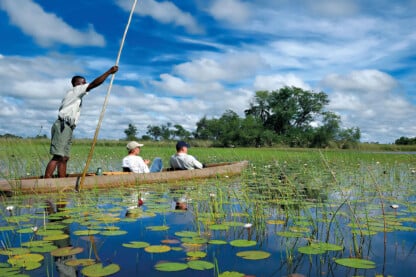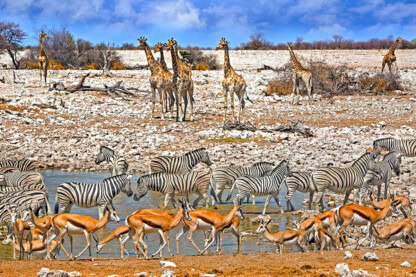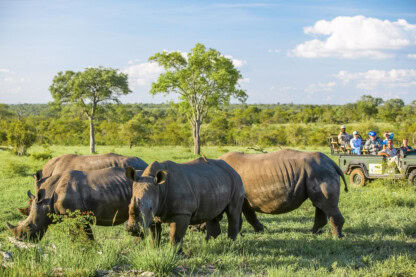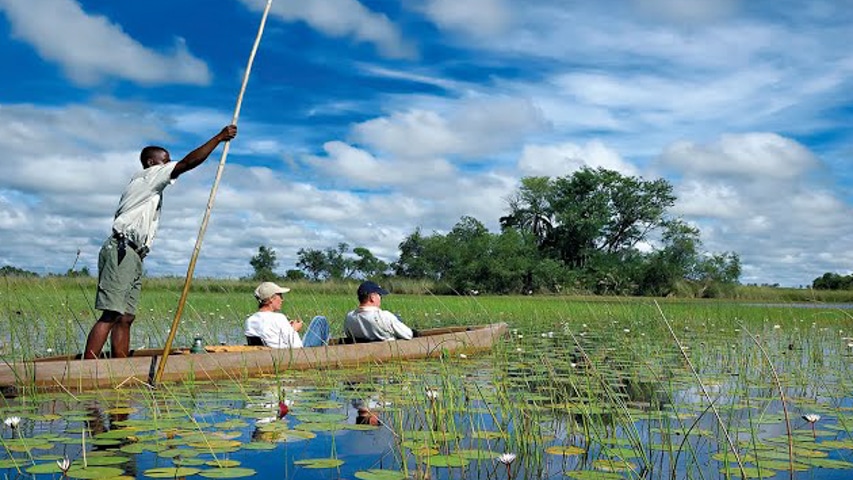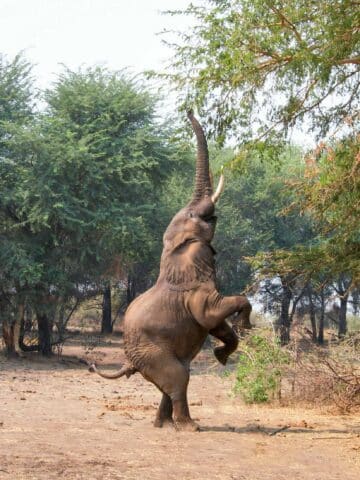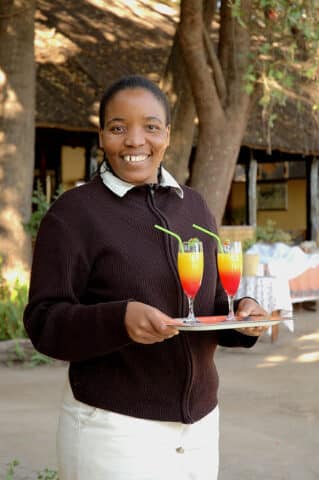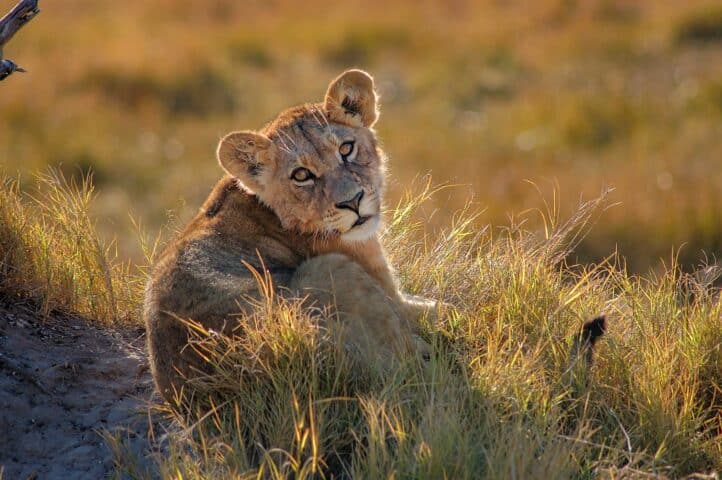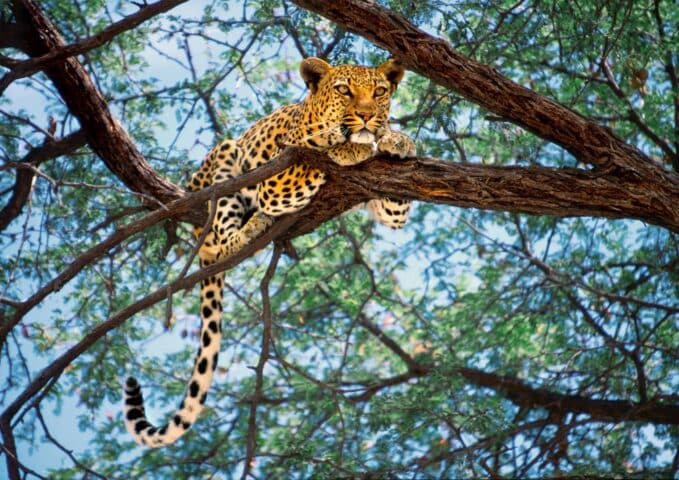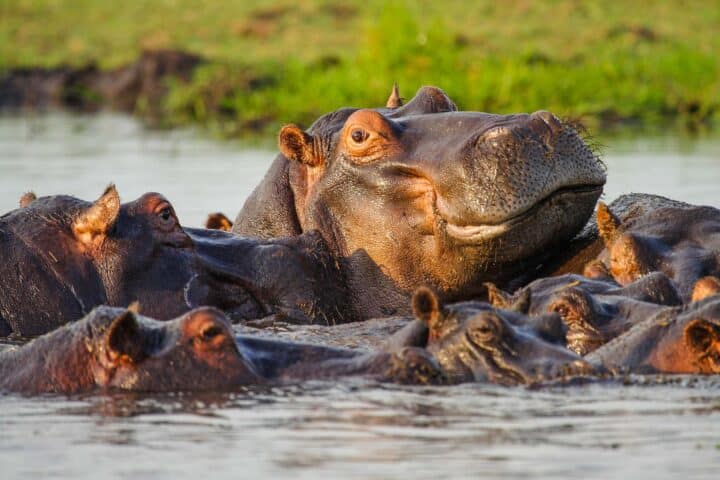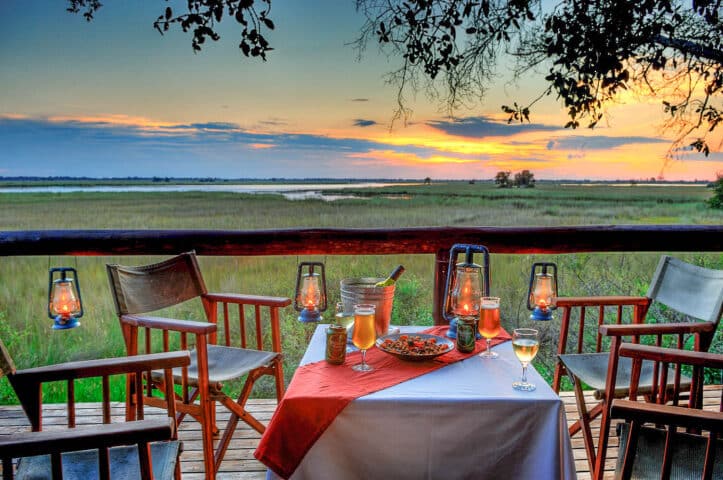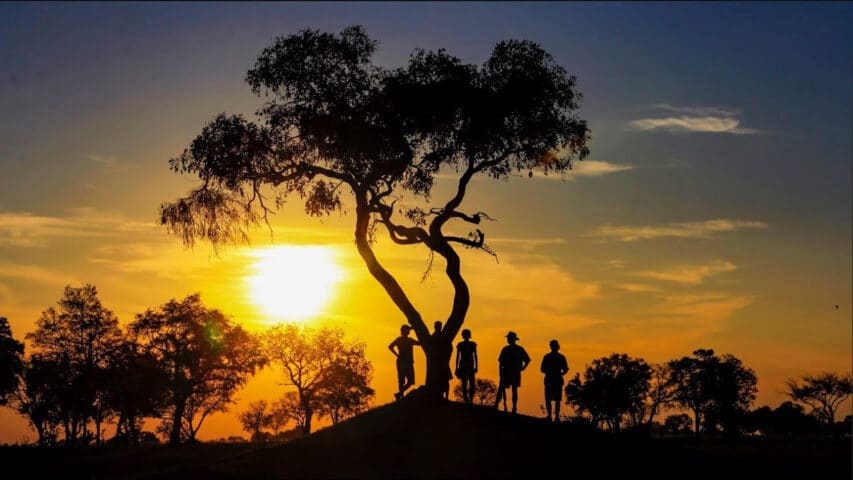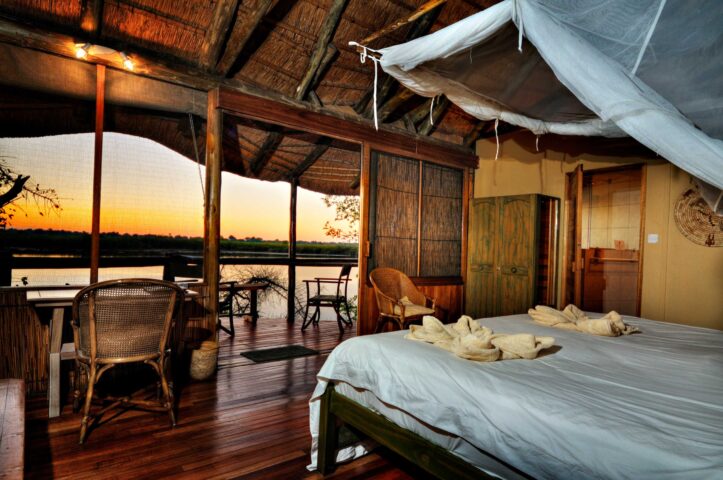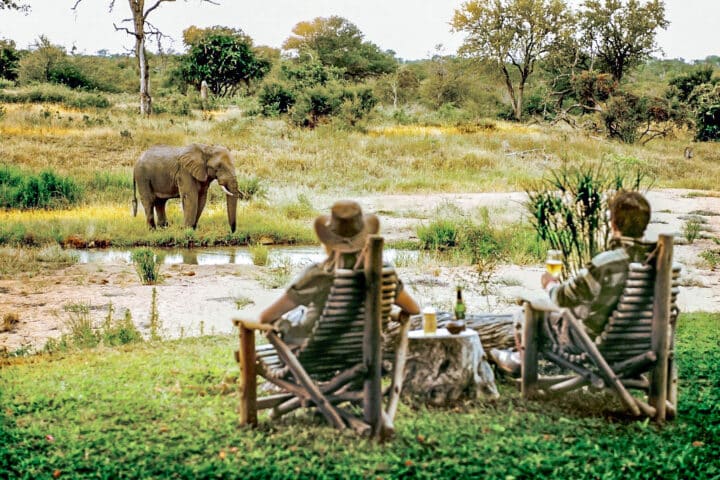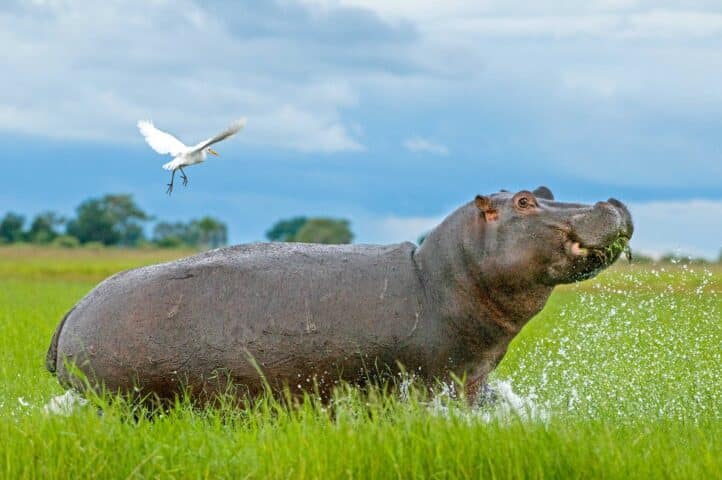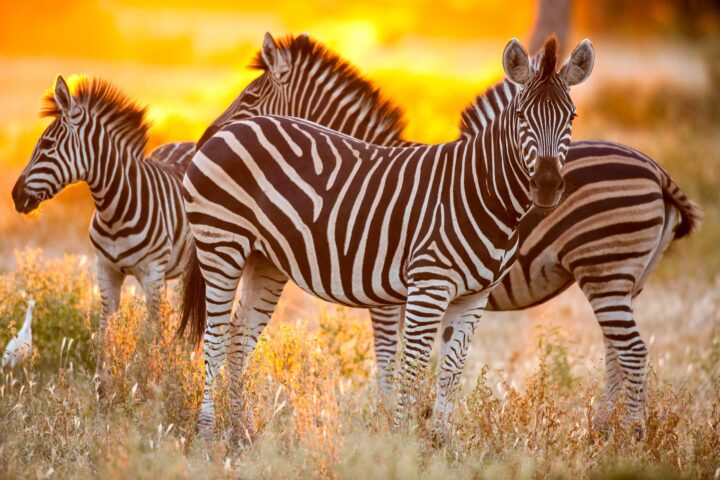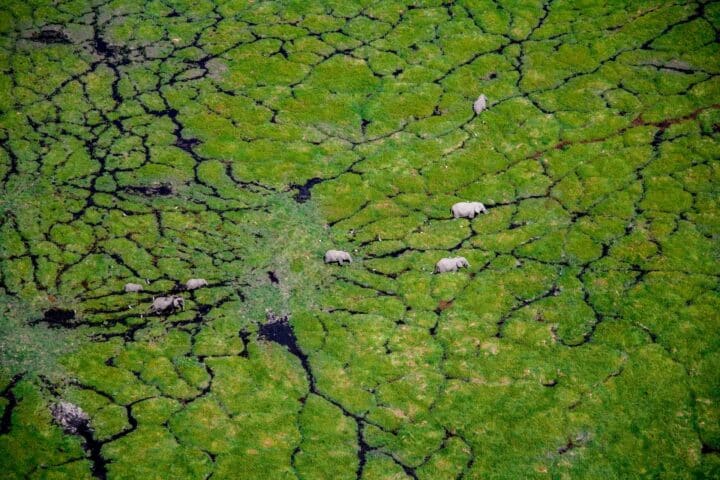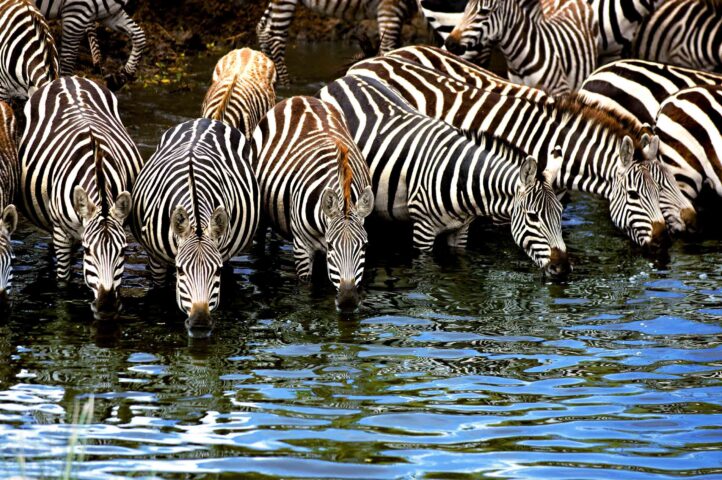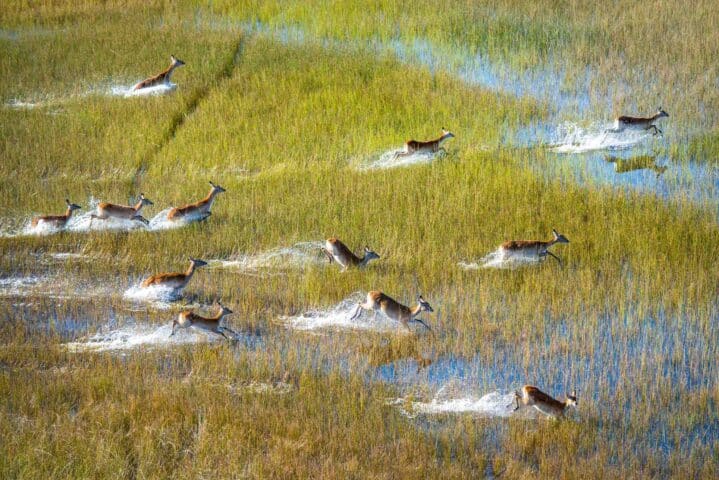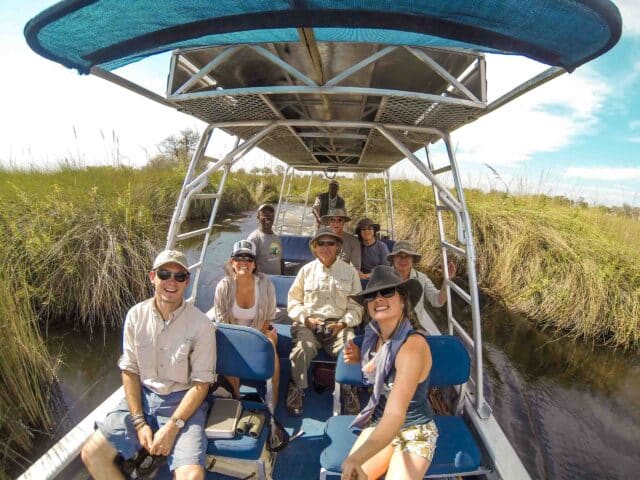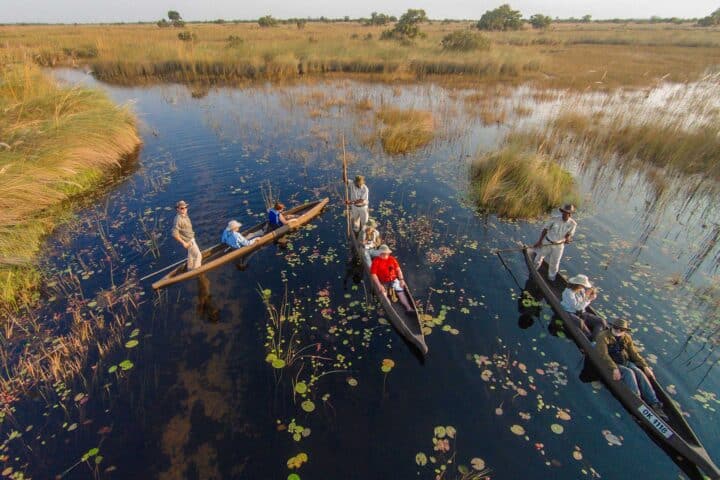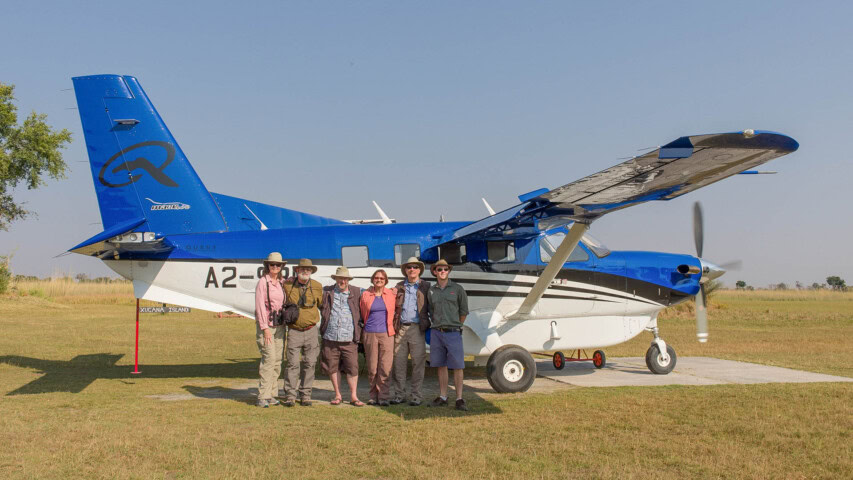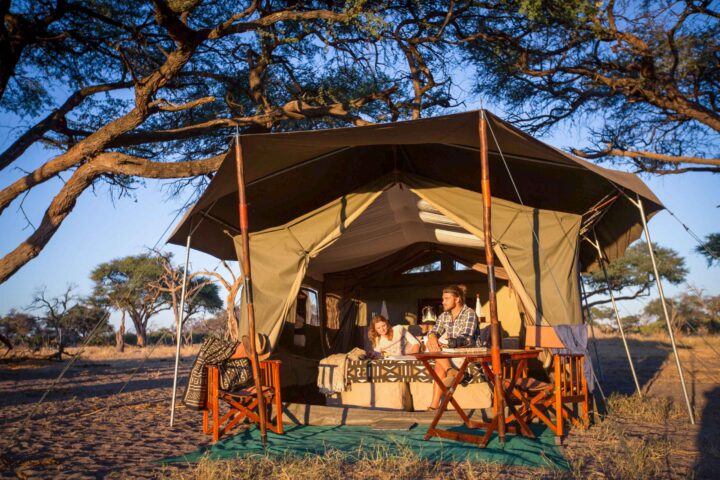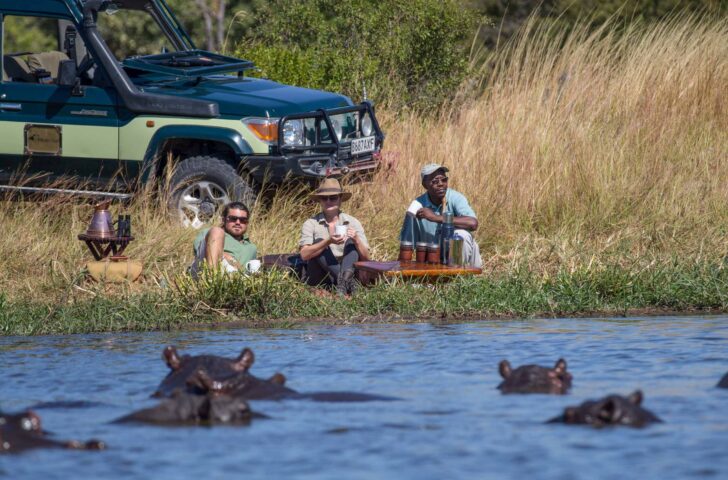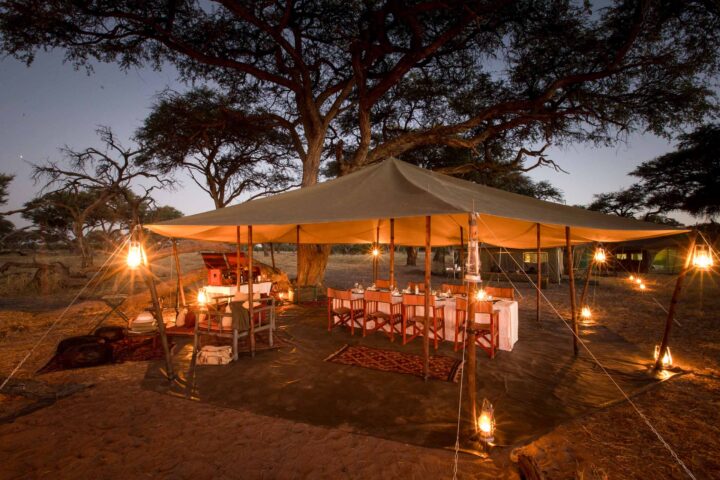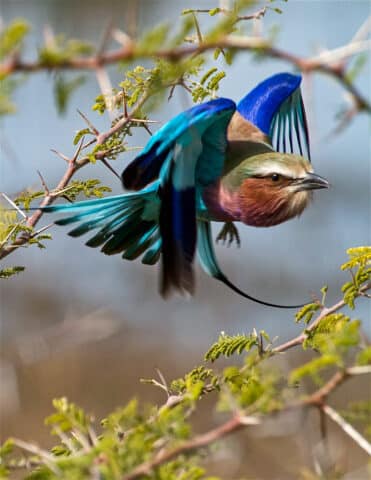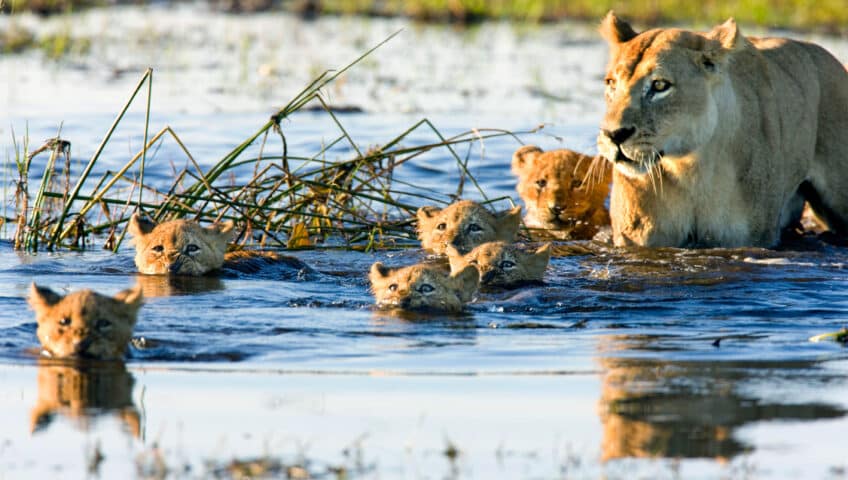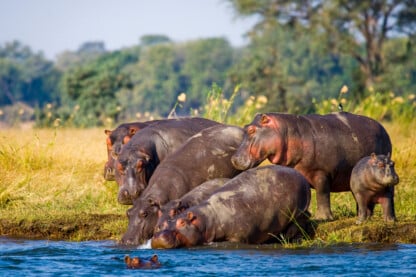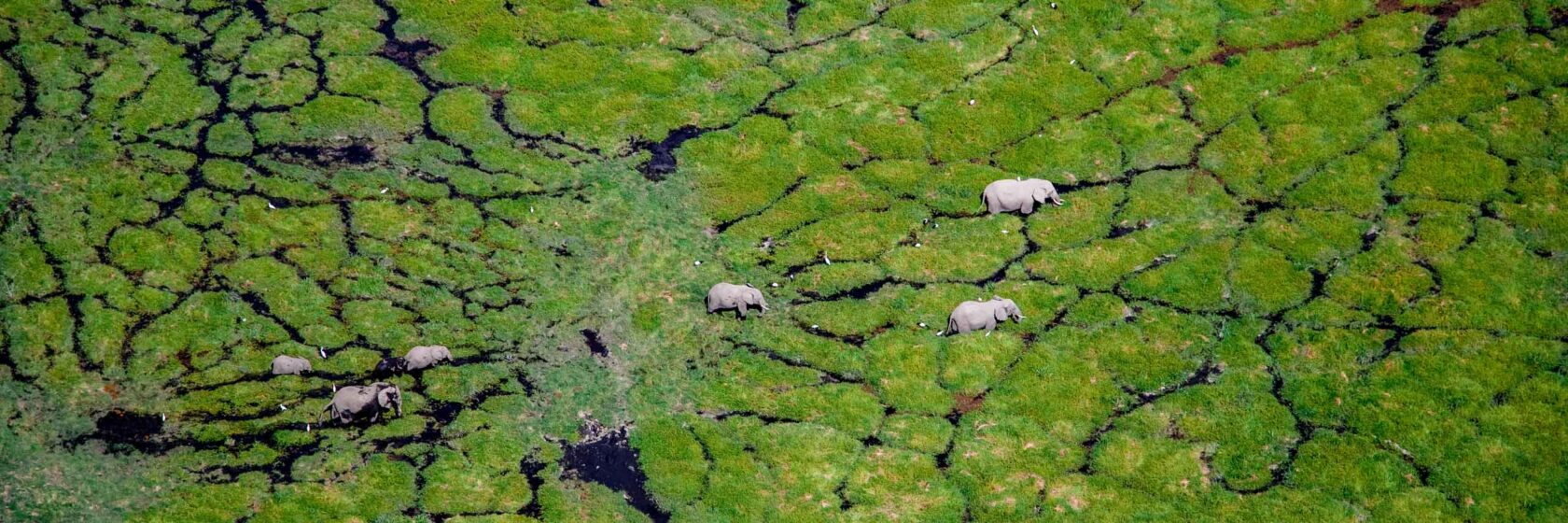
Africa
Botswana Safaris
Africa’s Ultimate Safari Destination
Experience Botswana as few travelers do, on a mobile camping safari—a true immersion in the untamed beauty of Africa. Designed to bring you away from the crowds and close to wildlife, our journeys explore the game-rich savannas of Chobe and Moremi on exhilarating game drives and by private boat, and head out on exciting bush walks and mokoro canoe excursions in the Okavango Delta. At journey’s end, experience one of the natural wonders of the world—Victoria Falls!
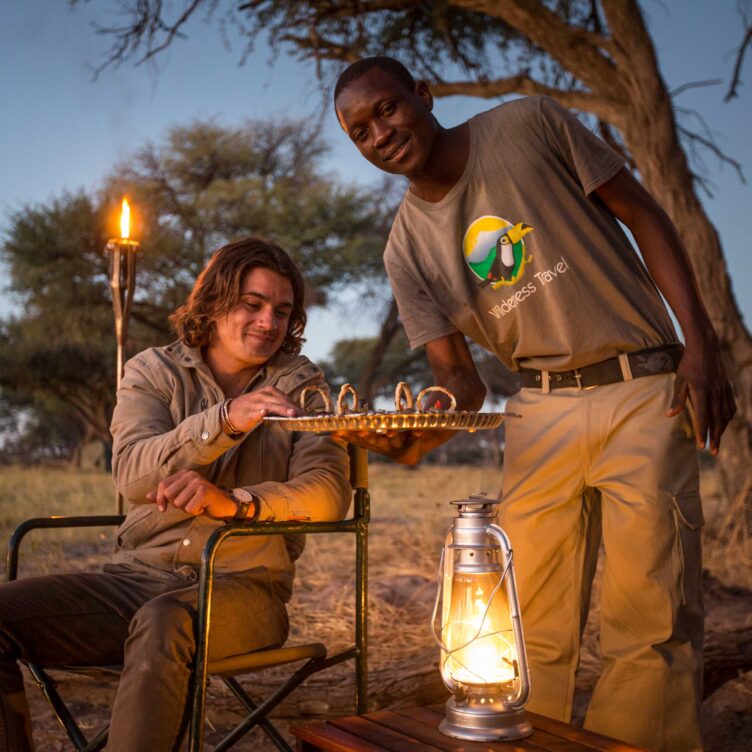
What Makes Our Botswana Safaris Special?
- Explore Africa the way few travelers ever do with private mobile camps and boutique lodges that get you close to the wildlife and away from the crowds.
- Expert naturalist guides lead your entire safari (no handing you off from lodge to lodge); and a staff-to-guest ratio of 1:1 in camp.
- Epic game viewing and great variety: 4WD vehicle, bush walks, private riverboat, canoe, and scenic charter flights.
- Custom-built 4WD safari vehicles with guaranteed window seats and roof hatches with 360-degree views.
- Experience Botswana’s phenomenal landscapes: the Okavango Delta, a World Heritage Site, exquisite Moremi Game Reserve, and Chobe National Park, with its massive herds of elephant.
- We offer a Botswana safari for every season, from our classic 11-day journey that includes Victoria Falls to our 14-day in-depth adventures in the Okavango Delta or the Kalahari Desert.
Everything You Need to Know
There is no wrong time to go on safari in Botswana, however, it is generally accepted that the best game viewing period is from late March to October. Because of the minimal rainfall during this season, the bush turns golden brown and in many areas is beaten flat, so game viewing is easier and animals concentrate around major water sources.

There is simply no experience that compares to a mobile safari. A world apart from lodge-based, our mobile camps immerse you deep in Botswana’s most magnificent and wildlife-rich terrain in absolute comfort.
- Spacious tents are equipped with comfortable beds (no cots!), and en suite private bathrooms with washbasins and hot showers.
- A private guide, chef, camp manager, tent steward, and camp team stay with you throughout your mobile safari. Our staff-to-guest ratio is 1:1 for the highest quality of service.
- Thrilling game viewing: our mobile camps have you out in the heart of the parks and close to the wildlife—no long drives back and forth on dusty lodge roads.
With its wide-open, sparsely populated countryside, Botswana has set aside more land for national parks and game reserves than any other country in Africa. It is a landlocked nation covering an area slightly smaller than the state of Texas. In essence, Botswana is a sandy plateau situated at an average elevation of 3,000-3,500 feet above sea level. Its most dominant geological feature is the Kalahari Desert, which covers roughly 80% of the country. At the northern edge of this arid area lies the Okavango Delta—the “Jewel of the Kalahari”—where the Okavango River is tamed by the semi-desert and spills over an area the size of Switzerland, and then disappears into the sand, never reaching the ocean to the south. It is the largest inland delta in the world. With its permanent supply of water, the Okavango Delta supports what is probably the most diverse profusion of plant and animal life in Southern Africa.
Setswana is the main language in Botswana, understood by about 90% of the people. Although you can manage well without knowing any of the language, it is always fun (and appreciated) when you try to use a few words.
Hello (to man/woman) — Dumela mma/rra
Hello (to a group) — Dumelang
Goodbye (person leaving) — Tsamayo sentle
Goodbye (person staying) — Sala sentle
Please — Tsweetswee
Thank you — Kea itumela
Yes/No — Ee/Nnyaa
Excuse me — Intshwarele
OK/No problem — Go siame
How are you? (morning) — A o tsogile?
How are you? (evening) — O tlhotse jang?
My name is… — Leina la me ke…
I’m from…. — Ke tswa kwa…
Come in! — Tsena!
The earliest recorded inhabitants of Botswana were the Basarwa, sometimes called Bushmen, although their proper name is San, meaning “people.”” Only about 3,000 full-blooded Basarwa still follow their traditional way of life, hunting and gathering in the harsh northern Kalahari. There are nearly 50,000 other Basarwas in Botswana and neighboring countries who have adapted more modern-day lifestyles. The migration of Bantu-speaking peoples from the north came later, and they brought their cattle herds with them.
In 1817, the English missionary Robert Moffat arrived and established a mission station at Kuruman. He set the Setswana language into written form and translated the bible into Setswana. The Boers swept through the land in 1835 and acquired vast tracts of land regardless of prior claims or inhabitants. In 1841, Dr. Livingstone befriended Robert Moffat and married his daughter Mary at Kuruman. Livingstone’s earlier explorations had brought him through Kolobeng to Lake Ngami in the Maun area (he was the first European to see the lake) and on to the Chobe River, the Zambezi, and Victoria Falls. After 1860, the Boers, Germans, and British carved up large tracts of land among themselves.
The British Government made Bechuanaland (Botswana) a British Protectorate in 1885. Cecil Rhodes tried to take over with his British South Africa Company in 1894, but failed. British Rule lasted 70 years. The 1960s saw the formation of the first political parties in Bechuanaland. In 1963, constitutional talks began and the machinery for self-rule and the establishment of the new capital city, Gaborone, was started. The first general elections were held in 1965 and independence was declared on September 30, 1966. Today, Botswana has one of the fastest growing economies in the African continent. The long tradition of kgotla (tribal assembly where there is freedom of speech and debate) has translated easily into a multi-party parliamentary democracy.
Learn More
Talk to an Expert
Our Africa Specialists know every detail about our Botswana safaris. They will be happy to answer any questions and help you choose the journey that’s right for you. Contact us to learn more or book your trip today!

